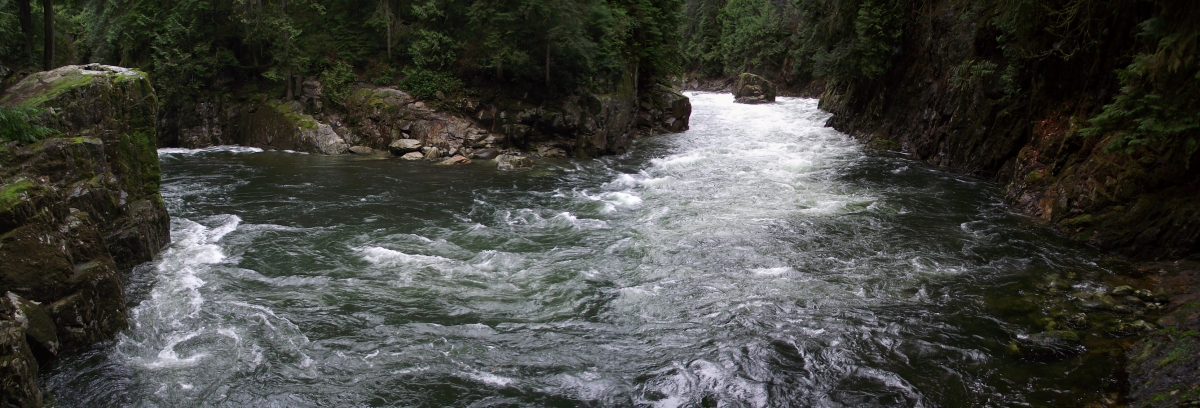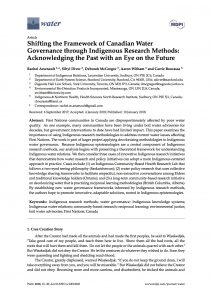 Changer le Cadre de Gouvernance Canadienne dans le secteur de l’Eau à travers des Méthodes de Recherches Autochtones : Reconnaître le Passé avec un Regard vers le Futur.
Changer le Cadre de Gouvernance Canadienne dans le secteur de l’Eau à travers des Méthodes de Recherches Autochtones : Reconnaître le Passé avec un Regard vers le Futur.
Par Rachel Arsenault, Sibyl Diver, Deborah McGregor, Aaron Witham and Carrie Bourassa
Journal: Water
Publié le 10 Janvier 2018
Texte complet: Ici
Abrégé : Les communautés Autochtones au Canada sont affectées de manière disproportionnée par la mauvaise qualité de l’eau. Par exemple, de nombreuses communautés vivent depuis plusieurs décennies sous un ordre de faire bouillir et les interventions et initiatives publiques à ce jour ont eu un impact limité. Cet article examine l’importance d’utiliser des méthodologies de recherches autochtones afin de répondre aux problèmes de qualité de l’eau affectant les Premières Nations. Ce travail fait partie intégrante d’un projet plus large qui applique des méthodologies décoloniales à la gouvernance autochtone dans le secteur de l’eau. Parce-que les épistémologies autochtones sont au cœur des méthodes de recherches autochtones, notre analyse commence par présenter le cadre théorique qui informe les relations autochtones à l’eau. Nous considérons ensuite trois études de cas d’initiatives innovantes de recherche Autochtone qui démontre la façon dont la recherche sur l’eau et les initiatives publiques peuvent adopter une approche plus autochtone en pratique. Ces études de cas comprennent (1) un laboratoire Autochtone et communautaire de recherche sur la santé qui poursuit une philosophie à double regard (Saskatchewan) ; (2) une recherche de politique publique sur l’eau qui utilise des cadres de partage de connaissance collective afin de faciliter des conversations respectueuses et non-extractives avec les Anciens et ceux qui portent le savoir traditionnel (Ontario) ; et (3) une initiative de recherche communautaire de long terme pour la décolonisation de l’eau qui pratique des méthodologies d’apprentissage mutuel (Colombie Britannique, Alberta).
En établissant de nouveaux cadres de gouvernance dans le secteur de l’eau, informés par des méthodes de recherches Autochtones, les auteurs espèrent promouvoir des solutions innovantes et flexibles, ancrées dans des épistémologies Autochtones.
Mots clés : méthodologies de recherche Autochtones, gouvernance dans le secteur de l’eau, systèmes de savoir Autochtone, relations Autochtones à l’eau, recherche communautaire, apprentissage mutuel, justice environnementale, ordre de faire bouillir l’eau, Premières Nations, Canada.


 Changer le Cadre de Gouvernance Canadienne dans le secteur de l’Eau à travers des Méthodes de Recherches Autochtones : Reconnaître le Passé avec un Regard vers le Futur.
Changer le Cadre de Gouvernance Canadienne dans le secteur de l’Eau à travers des Méthodes de Recherches Autochtones : Reconnaître le Passé avec un Regard vers le Futur.